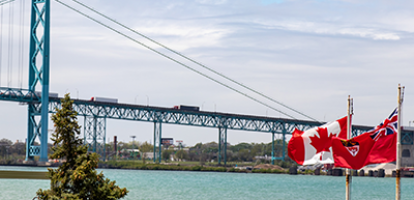From: Jon Johnson
To: Keystone saga watchers
Date: July 11, 2023
Re: Does NAFTA Live on in TC Energy’s Claim Against Washington?
There have been recent developments in the investor/state case brought by TC Energy – TransCanada Pipelines of old – against the US under the rules of procedure established by the International Centre for Settlement of Investment Disputes (ICSID), a multilateral treaty under the World Bank.
The case is one of the NAFTA investor/state claims relating to a “legacy investment” (an investment in existence on July 1, 2020). NAFTA was superseded by CUSMA on July 1, 2020 but CUSMA permitted investors to file claims on behalf of “legacy investments” until July 1, 2023.
The $15-billion TC Energy claim was triggered by the Biden administration’s cancellation of the Trump administration’s permit for TC Energy’s proposed 500,000-barrel-a-day Keystone pipeline expansion.
This claim raises the question – when do the facts giving rise to a legacy investment claim have to have occurred – before the NAFTA termination date of July 1, 2020, or at any time up to July 1, 2023? The Biden administration cancelled the Keystone permit on January 20, 2021, well after the July 1, 2020 cut-off date.
The US filed a Request for Bifurcation in the ICSID proceeding, requesting that the tribunal first consider a jurisdictional issue, namely whether the facts giving rise to the claim have to have arisen before the July 1, 2020 cut-off date. The tribunal should proceed to the merits, the US argues, only if it decides that the facts giving rise to the claim can have occurred after July 1, 2020.
On April 13, the Tribunal issued Procedural Order No. 2, rejecting TC Energy’s argument that the US jurisdictional argument was frivolous and concluded that bifurcation would not result in a “duplication of arguments or evidence.” Hence the tribunal will proceed to decide the jurisdictional issue before considering the merits.
Suppose that the ICSID tribunal agrees with the US jurisdictional argument and that the TC Energy claim is invalid because the facts giving rise to it occurred after the July 1, 2020 cutoff date. This would effectively end TC Energy’s claim.
The ultimate decision of the ICSID tribunal could go the other way, with the tribunal rejecting the US jurisdictional argument. The tribunal would then proceed to decide TC Energy’s claim on the merits.
The Canadian Centre for Policy Alternatives (CCPA) has weighed in with a new paper that says investor-state dispute settlement mechanisms are counter-productive to addressing environmental issues such as climate change, and cites instances in which countries party to investor/state procedures have had to pay damages to settle investor-state claims arising from environmental measures.
Therefore, the authors say, Canada should enter the dispute to support the US interpretation of the CUSMA legacy provisions, perhaps by working jointly to develop an official interpretation of the provisions.
The government has typically avoided taking a position in claims in which Canada is not an active party. It should continue this practice in this case.
Pipeline opponents naturally want Canada to weigh against the Canadian company that obtained the permit to build, but if it were to do so, Canada would not gain in the broader context of how these disputes are settled under existing agreements.
The legacy claims (including the TC Energy claim if the ICSID tribunal rejects the US jurisdictional argument) will work their way through to a conclusion. Once this process is complete, investor/state dispute settlement will no longer apply as between Canada and the US but will continue to apply as between Canada and the many other countries with which Canada has agreements providing for investor/state dispute settlement. This odd situation is an accident of history, the legacy of a US president who campaigned on renegotiating NAFTA and whose trade representative happened to think investor/state procedures should be eliminated because they tended to encourage US investors to invest abroad.
The Canadian government has gained in no longer having to defend claims brought by US investors. However, Canadian investors in the US will have lost a potentially useful remedy for countering unfair conduct by the US federal or state governments.
Jon Johnson is a former advisor to the Canadian government during NAFTA negotiations and is a Senior Fellow at the C.D. Howe Institute.
To send a comment or leave feedback, email us at blog@cdhowe.org.
The views expressed here are those of the author. The C.D. Howe Institute does not take corporate positions on policy matters.





